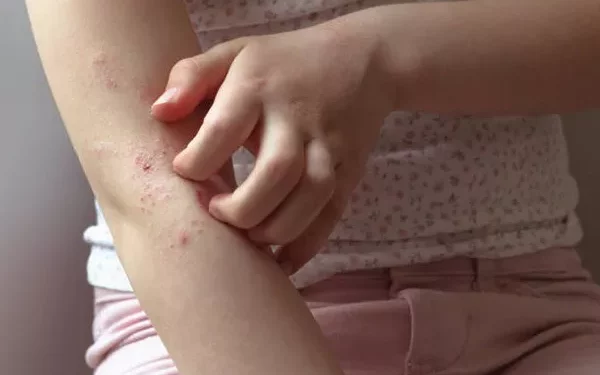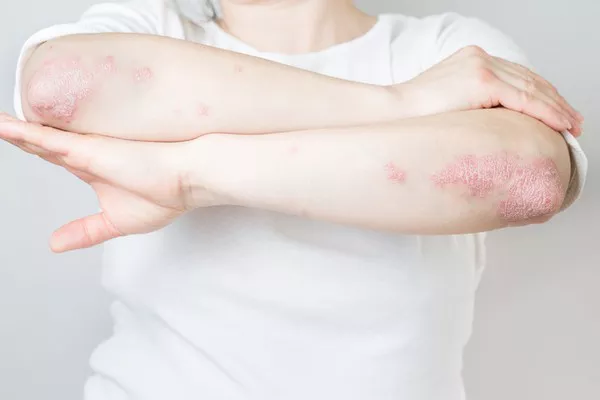Eczema, also known as atopic dermatitis, is a chronic skin condition characterized by inflammation, dryness, and intense itching. It affects millions of people worldwide, often causing discomfort and disrupting daily life. While there is no cure for eczema, managing symptoms effectively can significantly improve quality of life. One of the most challenging aspects of eczema to deal with is the relentless itching it induces. In this article, we will explore the best strategies for stopping eczema itching, ranging from immediate relief techniques to long-term management and lifestyle adjustments.
Immediate Relief Strategies
When eczema flares up and the itching becomes unbearable, immediate relief is essential. Here are some strategies to help alleviate itching right away:
1. Cool Compresses and Baths:
Cool water can provide instant relief by numbing the nerve endings in the skin and reducing inflammation. Applying a cool compress or taking a lukewarm bath can soothe itching and calm irritated skin. To create a cool compress, soak a clean cloth in cold water, wring out the excess, and apply it to the affected area for 10-15 minutes. Repeat as needed throughout the day. When taking a bath, avoid hot water as it can further dry out the skin and exacerbate itching. Instead, opt for lukewarm water and add colloidal oatmeal or baking soda to help soothe the skin.
2. Moisturizing Techniques:
Keeping the skin well-hydrated is crucial for managing eczema symptoms, including itching. Regularly moisturizing helps to maintain the skin’s natural barrier function, preventing moisture loss and reducing irritation. Choose emollient-rich creams or ointments specifically formulated for eczema-prone skin. Apply moisturizer generously after bathing or whenever the skin feels dry. Look for products that contain ingredients like ceramides, hyaluronic acid, and shea butter, which help to lock in moisture and repair the skin barrier.
3. Over-the-Counter Remedies:
There are several over-the-counter (OTC) products available to relieve eczema itching. Anti-itch creams containing ingredients like hydrocortisone, menthol, or pramoxine can provide temporary relief from itching and inflammation. Calamine lotion, which contains zinc oxide and ferric oxide, has a soothing effect on irritated skin and can help alleviate itching. Antihistamine medications, available in both topical and oral forms, can also help to reduce itching by blocking histamine receptors in the skin.
Long-Term Management
While immediate relief strategies offer temporary respite from eczema itching, long-term management is essential for controlling symptoms and preventing flare-ups. Here are some strategies for long-term eczema management:
1. Identifying and Avoiding Triggers:
Eczema triggers vary from person to person but often include allergens, irritants, and emotional stress. Keeping a journal to track flare-ups can help identify specific triggers that worsen itching and inflammation. Common triggers include harsh soaps and detergents, synthetic fabrics, pet dander, pollen, and certain foods. Once identified, avoiding these triggers as much as possible can help prevent flare-ups and reduce itching.
2. Developing a Skincare Routine:
Establishing a regular skincare routine is essential for managing eczema symptoms effectively. Choose gentle cleansers and moisturizers that are free of fragrances, dyes, and other potential irritants. Cleansing the skin with lukewarm water and patting it dry gently can help prevent further irritation. Apply moisturizer immediately after bathing to lock in moisture and protect the skin barrier. In addition to basic skincare, your dermatologist may recommend prescription medications such as topical corticosteroids or calcineurin inhibitors to control inflammation and itching.
3. Medical Treatments:
In severe cases of eczema, medical treatments may be necessary to manage symptoms effectively. Topical corticosteroids are commonly prescribed to reduce inflammation and itching. These medications should be used sparingly and under the guidance of a healthcare professional to minimize the risk of side effects. In some cases, oral medications such as antihistamines, corticosteroids, or immunosuppressants may be prescribed to control symptoms. Light therapy, or phototherapy, involves exposing the skin to controlled amounts of natural or artificial ultraviolet light and can be effective in reducing inflammation and itching in some individuals.
Lifestyle and Home Remedies
In addition to skincare and medical treatments, certain lifestyle adjustments and home remedies can help manage eczema symptoms and reduce itching:
1. Stress Management Techniques:
Stress is a known trigger for eczema flare-ups and can worsen itching and inflammation. Incorporating stress management techniques such as deep breathing, meditation, yoga, or progressive muscle relaxation into your daily routine can help reduce stress levels and improve eczema symptoms.
2. Dietary Considerations:
While the relationship between diet and eczema is complex and varies from person to person, some individuals may find that certain foods trigger or worsen their symptoms. Common trigger foods include dairy, eggs, nuts, soy, wheat, and seafood. If you suspect that your diet may be contributing to your eczema symptoms, consider keeping a food diary to identify potential triggers and consult with a healthcare professional or registered dietitian for personalized dietary advice.
3. Creating a Supportive Environment:
Maintaining a cool, humid environment can help prevent skin dryness and reduce itching. Use a humidifier in dry indoor environments, especially during the winter months, to add moisture to the air. Choose clothing made from soft, breathable fabrics such as cotton or silk, and avoid rough, scratchy materials like wool. Wash clothing with mild, fragrance-free detergents and rinse them thoroughly to remove any residual detergent that could irritate the skin.
Conclusion
In conclusion, managing eczema itching requires a multifaceted approach that combines immediate relief strategies, long-term management techniques, and lifestyle adjustments. By incorporating these strategies into your daily routine and working closely with your healthcare provider, you can effectively control itching and improve your overall quality of life despite living with eczema.

























